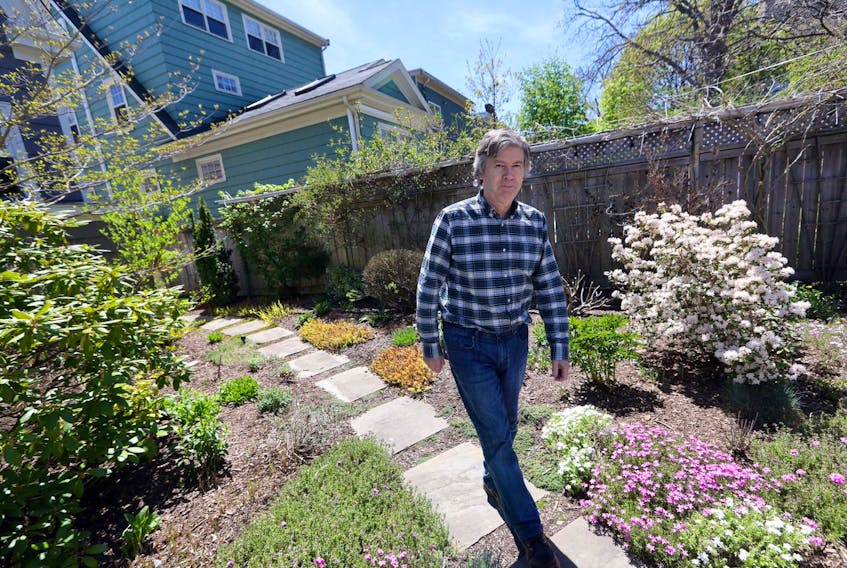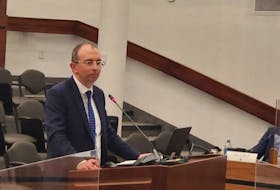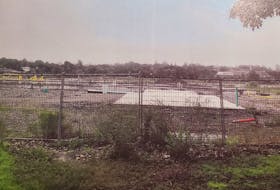David Mitchell doesn’t know if he’ll have it in him to get his vegetable garden planted this year in the Margaree Valley.
The longtime dairy and fruit farmer has spent the winter living in Halifax to be nearer treatment for non-Hodgkin lymphoma.
But he does believe he is prepared to be the Canadian face of a class-action lawsuit against two of the world’s biggest agricultural and pharmaceutical companies.
“Oh yeah, I have no problem with that,” the 63-year-old said Friday.
Last July, Mitchell and Ontario hobby farmer Gretta Hutton filed suit against Bayer Inc., Monsanto Company, Monsanto Canada ULC and Monsanto Canada Inc.
Bayer bought Monsanto, maker of the herbicide Roundup, in 2016 for $66 billion.
Mitchell, Hutton and the over 900 signatories to their class action filed in Nova Scotia Supreme Court in Halifax allege that the current and former producers of Roundup “knew or should have known” that exposure to their product posed an increased risk to developing cancer.
They’re backed up by a study titled Exposure to Glyphosate-based Herbicides and Risk for Non-Hodgkin Lymphoma: A Meta-analysis and Supporting Evidence, published last February in academic journal Mutation Research/reviews in Mutation Research by researchers at the University of Washington.
Its authors examined epidemiological studies on the connection between glyphosate exposure and cancer published between 2001 and 2018. Included in that was a 2018 study of 54,000 licensed professional pesticide applicators in the United States.
It found that exposure to glyphosate, the active ingredient in Roundup, increased the risk to non-Hodgkin lymphoma by up to 41 per cent.
“They refused to include a cancer warning or any adequate warning on the label or to instruct users to wear protective clothing or equipment while spraying Roundup, and they unduly influenced, undermined and discredited scientific research that found their product to be harmful to humans,” reads the suit’s statement of claim.
“All of this was for the purpose of safeguarding the enormous profits generated by one of the most widely used herbicides in the world, while disregarding the health and lives of Canadians.”

In 1994, Mitchell left his job with CN Rail, sold his hobby sheep farm near Lunenburg and moved with his then wife and their two young children to Scotsburn, Pictou County.
They started with a herd of 15 purebred jersey dairy cows.
Among the many chores of running a growing farm was keeping those purebred jerseys from escaping.
That meant walking the pasture lines with a backpack sprayer, applying glyphosate to kill the grass that would grow up and arc out the electric fence.
Mitchell would make the rounds in the morning before the wind picked up, wearing coveralls and gloves.
“It was very common practice, still is,” said Mitchell.
“You’d try to be careful because it was a chemical. But you still would end up getting the bloody stuff on you. It didn’t matter how careful you tried to be, you’d end up spilling a bit, breathing a bit.”
By 2003, Mitchell was up for a new adventure in agriculture.
He moved to New Zealand to work on a dairy farm.
There, his duties included spraying Roundup.
Glyphosate can be found nearly anywhere there is commercial agriculture.
Since Monsanto began marketing it under the name Roundup in 1974, approximately 9.4 million tonnes have been sprayed. According to U.S. Right to Know, an American non-profit research group, that’s about half a tonne of Roundup for every cultivated acre in the world.
In 2005, he moved back to Nova Scotia to buy an orchard.
“You don’t have to milk them twice a day,” said Mitchell of what attracted him to tree crops.
The 48-hectare farm in Somerset, near Aylesford, included 13 hectares of apple trees and six hectares of grape vines.
He sprayed Roundup daily in the spring when grass was coming up to compete with the trees for nutrients. Wearing a sealed suit but no mask, he sprayed it from a boom mounted on the front of a tractor and using a backpack sprayer.
“I enjoyed it, but there wasn’t enough money in it at the time,” Mitchell said of why they didn’t stick with the orchard.
“I wasn’t trying to get rich. As in most farming, you don’t get rich, just try to be comfortable and at least break even.”
Next came a stint on a nearby cranberry bog, where he sometimes sprayed Roundup, and then trips to Alberta for work.
In 2013, he was preparing to head back to New Zealand when a blood test showed a very high white cell count. He went anyway.
But after eight months, his health deteriorated and he returned to Montreal, where two of his sons were living.
After some false starts, a proper diagnosis finally arrived: Waldenström macroglobulinemia.
It’s a hard-to-pronounce and rare form of non-Hodgkin lymphoma.
The doctors gave him five years to live.
“So that changed the whole ball of wax,” Mitchell said.
Lawsuits
Suing the makers of the world’s most popular herbicide has become an industry unto itself.
Last May, a California jury awarded $2 billion to Alva and Alberta Pilliod, a couple in their 70s who had been spraying the herbicide since it first went on the market in 1974 and who both were diagnosed with non-Hodgkin lymphoma. A judge later lowered the amount Monsanto would be expected to pay to $87 million.
It was the third loss in row for Monsanto and, in its wake, the number of lawsuits against the company skyrocketed from 11,000 to the current 125,000.
There are at least 12 class actions in Canada.
The Canadian Bar Association's traditional protocol for multijurisdictional class proceedings means that they will likely all get rolled into one suit for the sake of efficiency.
“So it really is a competition to see who is going to represent the class,” said Raymond Wagner, the Halifax attorney bringing the Nova Scotia suit.
Whichever suit gets certified in court first is more likely to be the one all the other cases get rolled into.
Last week, Monsanto and Bayer had a request to have the Nova Scotia suit thrown out as an abuse of process, but that was denied by Supreme Court Justice Denise Boudreau.
So Mitchell and Hutton’s suit, with a certification hearing scheduled for next summer, is a leading contender.
William Mcnamara, attorney for Monsanto and Bayer, did not respond to a request for comment.
Mitchell doesn’t know how much time he has left.
He does know that spring is treacherous in the Margaree Valley.
Since moving there a few years ago, he’s kept a large vegetable garden.
“Ha,” he stifles a weak laugh when asked if the first full moon in June would be safe planting there.
If his health allows, he’ll move back there for the summer and get it planted.
And he’ll sue two multibillion-dollar companies.









